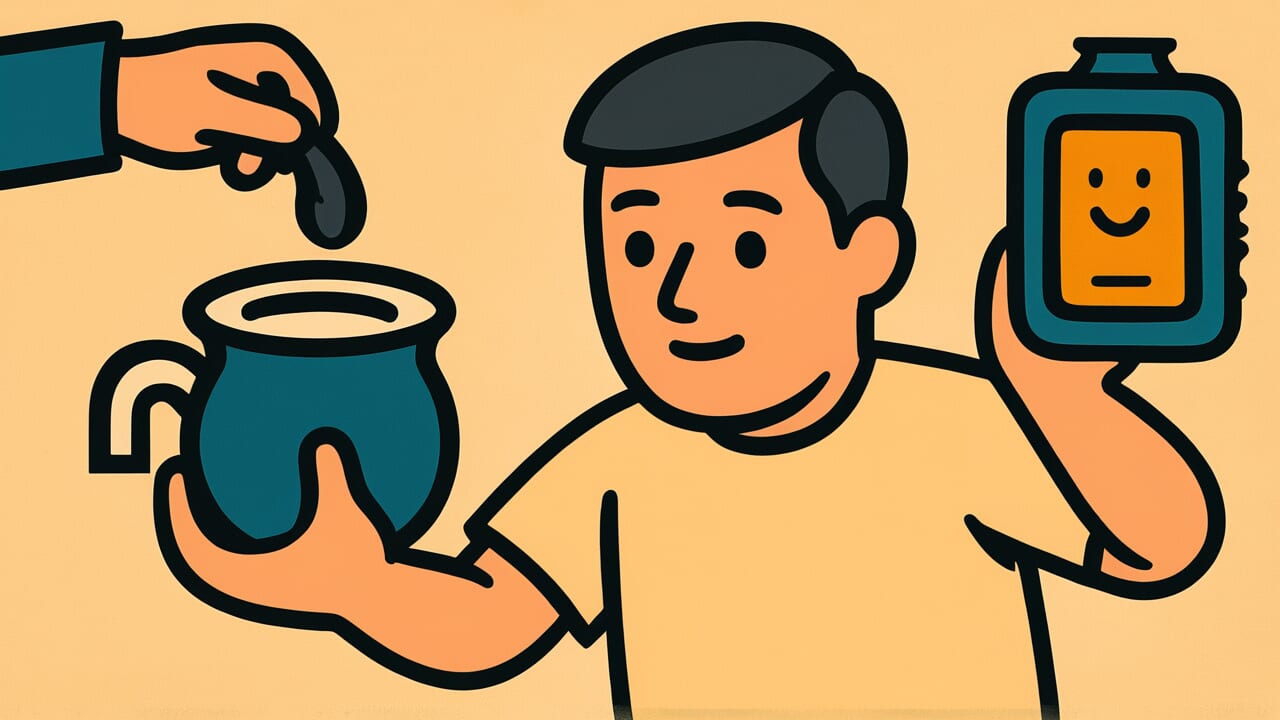How to Read “A borrowed thing is half an owner”
Azukari mono wa hanbun no nushi
Meaning of “A borrowed thing is half an owner”
“A borrowed thing is half an owner” means you should treat borrowed items as carefully as your own possessions. You don’t own what you’ve borrowed, but while it’s in your care, you must manage it with the same responsibility as the owner.
This proverb applies to many situations. It could be a book borrowed from a friend, documents entrusted at work, or watching someone’s house while they’re away. The saying warns that treating borrowed items carelessly, losing them, or damaging them betrays trust.
This spirit remains important today. Handling borrowed items carefully shows respect for others. It’s fundamental to maintaining good relationships.
Being even more careful with borrowed items than your own builds true trust between people.
Origin and Etymology
No clear written records explain this proverb’s origin. It likely emerged from Japanese business practices and everyday life wisdom.
Looking at the word “borrowed thing,” we find that during the Edo period, merchants commonly ran businesses based on holding items for others. Pawnshops, money exchangers, and warehouses all depended on keeping other people’s valuables safe.
In these businesses, treating borrowed items as carefully as your own—or even more carefully—was the foundation of trust.
The phrase “half an owner” is particularly interesting. You’re not the complete owner, but while holding something, you carry the same responsibility as one. The word “half” reflects a uniquely Japanese sense of responsibility.
You don’t have the rights, but you do have the duty.
In times when relatives and neighbors regularly borrowed from each other, careless treatment of borrowed items could destroy relationships. This proverb grew from the spirit of mutual trust cultivated in such communities.
Japanese culture’s emphasis on trust between people gave birth to this saying.
Usage Examples
- I borrowed this game from my friend, so remembering “a borrowed thing is half an owner,” I’ll handle it carefully to avoid scratches
- Even when using company equipment, we should treat it more carefully than our own things, keeping “a borrowed thing is half an owner” in mind
Universal Wisdom
“A borrowed thing is half an owner” contains a fundamental principle that makes human society work. It offers deep insight into the relationship between ownership and responsibility.
We usually think we should care for our own things and can be casual with others’ belongings. But this proverb teaches a paradoxical truth. You should be even more careful with others’ things.
Why? Because how you handle borrowed items reveals your true character.
When someone lends you something, they’re not just lending an object. They’re also lending their trust. Whether you honor or betray that trust reveals your essence.
How do you behave when no one’s watching? That’s the true mirror of your character.
This proverb also suggests the relativity of ownership. Even without being the complete owner, you can act as a responsible manager. Rights and duties don’t always match.
In fact, lacking rights may demand even higher ethical standards.
Our ancestors understood these subtle human dynamics. They knew trust grows through the daily accumulation of carefully handling small borrowed items. This proverb endures because it touches an unchanging truth about human society.
When AI Hears This
The ownership of borrowed things resembles quantum mechanics’ “superposition state.” Just as Schrödinger’s cat exists in both living and dead states, borrowed items simultaneously possess two qualities: “belonging to someone else” and “being under my management.”
What’s interesting is that each action by the borrower creates an “observation.” For example, you place a borrowed book on your shelf. At that moment, the book becomes part of your collection system.
You take care not to damage it. This too is an observation. These small decisions and actions accumulate, collapsing the ownership wave function into the “half an owner” state.
In quantum entanglement, distant particles instantly affect each other. Borrowed items work the same way. Even when the original owner is far away, the borrower’s actions always impact the relationship.
Misuse breaks trust, while careful handling deepens it. Though physically one object, it’s entangled between two people’s states.
The uncertainty principle teaches that “position and momentum cannot both be measured precisely.” Borrowed items can’t simultaneously be “completely someone else’s” and “completely mine.” So humans experientially discovered “half” as the middle solution.
Lessons for Today
This proverb teaches you how to build the invisible wealth called trust.
In modern society, the sharing economy is expanding. Car sharing and rental services give us more opportunities to use things without owning them. In such times, the mindset of carefully handling borrowed items becomes even more important.
The same applies to work. Company equipment, project documents, customer information—these are all borrowed things. By treating them as carefully as your own, or even more so, you steadily increase your trust balance.
In relationships too, when a friend shares their troubles, those worries are borrowed items for your heart. By treating them seriously rather than lightly, you create deep bonds.
What matters is how you behave when no one’s watching. Not handling things carefully because you’re being monitored, but cultivating a heart that sees it as natural.
Such accumulation raises your value as a person. Think of it this way: through borrowed things, you’re polishing your own character.



Comments